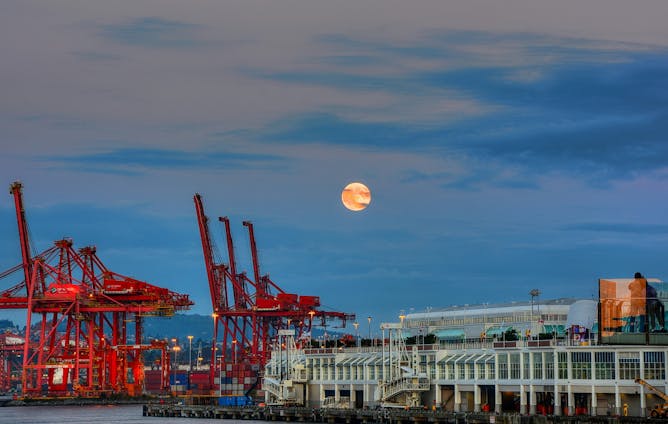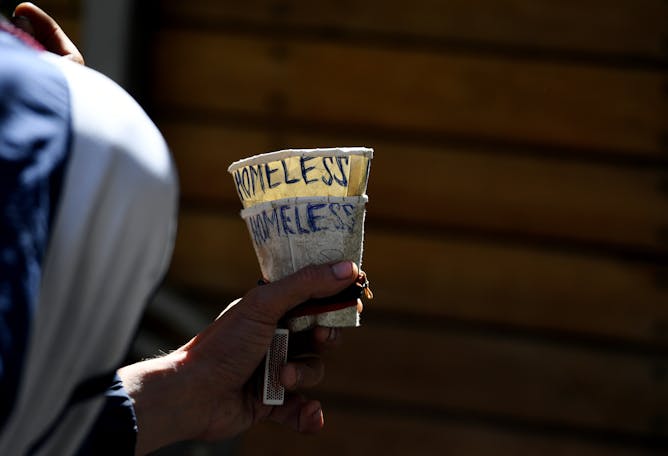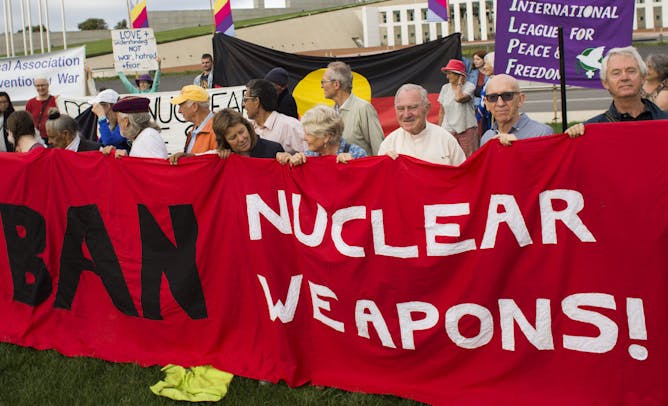|
|
|
Editor's note
|
|
Ever since we first started visiting the Moon, we’ve been leaving stuff behind. Footprints, surveying equipment, part of a thermal blanket that ripped off a landing module. As space archaeologist Alice Gorman points out, there are 50 different sites where human culture has landed on the Moon. It’s pretty multicultural too, including things from the US, USSR, Japan, India and China. And it will only increase in the future. One day we may even have cemeteries in space.
Alice’s story is part of a global series we’re running this month at The Conversation, in the lead up to the 50th anniversary of the moon landing. To the Moon and Beyond features space scientists from all over the world in a series of podcasts and articles in four languages. Listen to last week’s podcast on what we learned from landing on the moon and why we stopped going. You can hear Alice Gorman talking
about space archaeology in this week’s episode.
|
Shelley Hepworth
Section Editor: Technology
|

|
|
Top stories
|

Perhaps in 50 more years we will be sick of hearing stories from people who have travelled to the moon and back.
tdlucas5000 / AAP
Alice Gorman, Flinders University
In the future we might get sick of hearing people tell their stories about going to the Moon. Perhaps the Moon will just be like thinking about today's Antarctica – a remote but accessible place.
|

Ditch the ‘destiny’ mindset – a ‘relationship growth’ one is likely to deliver better romantic partnerships.
Laura Ockel
Gery Karantzas, Deakin University
If you're overlooking potential romantic partners because they're not who you envisioned as 'the one', it might be time to reassess your approach.
|

Accusations of ‘professional’ begging are misleading, intended to demonise those who beg as deceitful.
Tracey Nearmy/AAP Image
James Petty, University of Melbourne; Alison Young, University of Melbourne
Last week seven people were arrested for being alleged members of a begging 'syndicate'. Stories like this entrench public perceptions of the homeless as criminal.
|

Public support may be shifting in favour of nuclear energy in Australia, but there remains significant opposition to nuclear weapons.
Sean Davey/AAP
Heiko Timmers, UNSW
Developing nuclear weapons requires technological and industrial capabilities that Australia simply does not have at the moment. The political will may be lacking, too.
|
Arts + Culture
|
-
Caitlin Vincent, University of Melbourne
Opera companies around the world are grappling with an ever-widening gap between a repertoire frozen in time and an increasingly critical audience.
-
Alison Carroll, University of Melbourne
The exhibition Contemporary Worlds: Indonesia has many wonderful works. But it is an exception - despite our close proximity, there are few opportunities for Australians to engage with Indonesian art.
|
|
Business + Economy
|
-
Brendan Coates, Grattan Institute; Owain Emslie, Grattan Institute
New calculations suggest middle earners will earn less over their lives if compulsory super is ramped up from 9.5% of salary to 12% as scheduled.
|
|
Education
|
-
Jeff Wilks, Southern Cross University
There is enough policy and general advice in place about the safety of international students. We need operational programs with the police and other stakeholders, leading to evidence-based practice.
|
|
Environment + Energy
|
-
Rebecca Jarvis, Auckland University of Technology; Tim Young, Auckland University of Technology
New Zealand has one of the world's largest ocean territories, but the marine environment is at risk from climate change, pollution and fishing.
-
Anir Kumar Upadhyay, UNSW; Chris Lockhart Smith, UNSW; Krishna Munsami, UNSW
Australian houses are not designed and built for the realities of climate change
-
Martin Sevior, University of Melbourne
Iran has announced it will breach the limits on uranium enrichment agreed under the 2015 nuclear deal, after the US turned its back on the agreement. What does that mean for Iran's nuclear program?
-
Craig Stewart, National Institute of Water and Atmospheric Research
Parts of Antarctica's largest ice shelf are melting ten times faster than the rest of the shelf, and solar heated waters below the ice are to blame.
|
|
Health + Medicine
|
-
Robin Daly, Deakin University; Andrea B. Maier, Melbourne Health
A muscle-wasting condition called sarcopenia affects up to one-third of older adults. The good news is that people with sarcopenia can rebuild their muscle mass.
|
|
Politics + Society
|
-
Michelle Grattan, University of Canberra
Less than four in ten Australians believe stronger laws are needed to protect religious freedom in a new poll, but 68% say Israel Folau should be able to share his views on social media.
-
Susan Harris Rimmer, Griffith University; Elise Stephenson, Griffith University
A new report has found a major gender gap persists in Australia's diplomatic, defence and intelligence fields. Australia needs good ideas, and we cannot assume they will all come from the same place.
|
|
Science + Technology
|
-
Sherif A. Tawfik Abbas, RMIT University
Electricity happens when electrons move from one atom to another.
|
|
| |
Featured jobs
|

|
Griffith University — Mount Gravatt, Queensland
|

|
University of Melbourne — Parkville, Victoria
|

|
University of Technology Sydney — Sydney, New South Wales
|

|
RMIT University — Melbourne, Victoria
|
|
|
|
Featured events
|

|
Sir John Clancy Auditorium, UNSW Sydney, High Street, Kensington, New South Wales, 2052, Australia — UNSW
|

|
Level 12, Tower 2, 727 Collins Street, Melbourne, Victoria, 3000, Australia — Deakin University
|

|
193 Boundary St, West End , Queensland, 4101, Australia — The Conversation
|

|
Leighton Hall, John Niland Scientia Building, Library Road, UNSW Sydney, New South Wales, 2052, Australia — UNSW
|
|
|
|
| |
| |
| |
| |
| |
|
|
|
|
|
|
|